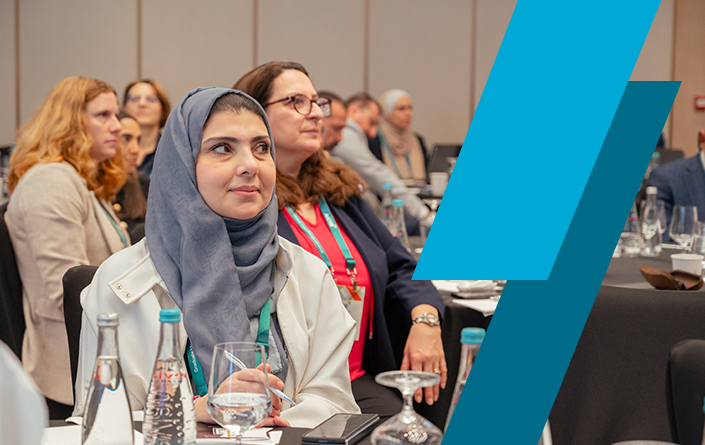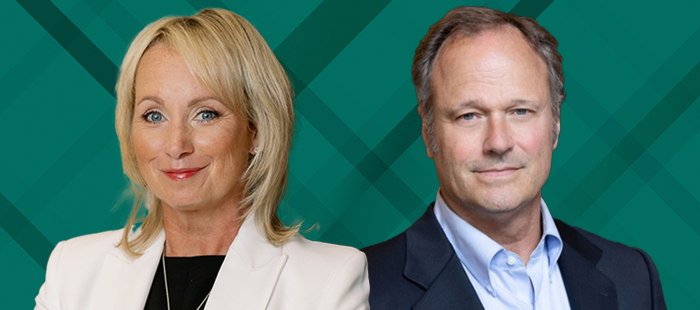Nurturing Inclusive Leadership
- Inclusive leaders create a culture where individuals feel safe to express themselves without fear of judgment or exclusion.
- Meaningful academic discourse should be grounded in research, evidence, and critical thinking.
- Organizations should promote inclusivity by modeling appropriate behavior and connecting with diverse stakeholders.
Empathy, inclusivity, and cultural competence are essential in fostering effective leadership, according to three experts in the field of diversity, equity, inclusion, and belonging (DEIB) who kicked off AACSB’s Diversity, Equity, Inclusion, and Belonging virtual conference in May. The panelists, who came from the fields of business and education, included Ian Williamson, dean of the Paul Merage School of Business at the University of California, Irvine; Kevin Chan Bradley, vice president of diversity, inclusion, and community at HUB International; and Tanesha Jones, equity, diversity, and inclusion leader at IKEA North America Services.
Donna Maria Blancero, professor of management and diversity at Bentley University in Waltham, Massachusetts, facilitated the discussion, which touched on topics such as the fear of bias, the role of academic freedom, and the importance of enhancing learning experiences with a more diverse portfolio of faculty.
Creating Cultures of Empathy
The panel emphasized that, at many organizations, individuals can feel apprehensive about engaging in open dialogue because they worry about how they may be perceived. Because this fear of misspeaking often hinders open dialogue and learning, companies need to create organizational cultures that promote inclusivity and empathy.
The experts stressed the importance of showing humility, admitting limitations, and being open to learning from others. They emphasized the need to create environments where individuals feel safe to express their thoughts and engage in discussions, unafraid of how they might be perceived, and feel free to misstep as long as they learn from the experience.
It takes experience and confidence for people to be able to admit the gaps in their knowledge and to be able to grow from them.
Bradley provided an insight he had recently gained at a professional development session. The speaker, a Medal of Honor recipient, said, “If a leader is missing two things, he or she will never succeed—and those two things are love and empathy.” It takes experience and confidence for people to be able to admit the gaps in their knowledge and to be able to grow from them.
Williamson echoed Bradley’s sentiments, adding that leaders must approach interpersonal relationships with acceptance and curiosity. He shared a quote by Robert Jones Jr. that says, “We can disagree and still love each other unless your disagreement is rooted in my oppression and denial of my humanity and right to exist.”
Williamson suggested that business schools can foster inclusivity by exposing students to differing perspectives through their coursework. Simply using case studies that feature diverse characters can go a long way toward creating this cultural competency that will pay dividends later in learners’ careers.
Examining the Role of Free Speech
Panelists stressed that educational institutions have a responsibility to encourage critical discourse and create an inclusive platform for meaningful debate. But they also acknowledged the importance of free speech. In fact, they pointed out the need to distinguish between academic freedom and personal opinions.
The speakers emphasized that expressions of academic freedom should be grounded in research and supported by evidence, while personal views should be recognized as such. Williamson said that the heart of the issue of free speech in academia is that discourse must center around expertise and authoritative resources in the academic field.
While on the topic of free speech, the panelists turned to a discussion of recent legislation in Florida, including a new law defunding DEI initiatives in public colleges.
First, Williamson shared his response as a business educator. Florida is one of the most diverse states in the U.S. in terms of its mix of cultures, he said. “How am I going to run a company in the state of Florida if I don’t have a pool of individuals who have a skill set that is able to actually understand and manage that effectively over long periods of time?” Noting that Florida had invested billions of dollars in education to create an educated workforce and citizenry, he wondered how the expertise cultivated by this significant investment was used to develop this piece of legislation.
The speakers emphasized that expressions of academic freedom should be grounded in research and supported by evidence, while personal views should be recognized as such.
Next, Bradley and Jones added a business perspective to the discussion. Jones said that, at IKEA, leadership had reviewed training around DEIB in the affected states to ensure the company was complying with state laws.
Bradley questioned how recruiters will view candidates from Florida, as their learners might be missing critical skills needed in today’s workforce. Jones agreed, saying, “Certainly, if we were recruiting from the state of Florida to serve New York or California, our students might be lacking those skills.”
For companies hiring graduates from states that are facing political hurdles related to DEIB, one solution might be to provide on-the-job training. But another solution, said Jones, was for companies in states with restrictive laws to continue partnering with the community to “keep the subject alive.” She said, “I think it keeps you connected to the topic and keeps the conversation going as folks challenge those who are making the laws.”
Promoting Inclusive Behavior
The panel highlighted the significance of faculty and staff engagement in teaching inclusive leadership as a life skill. They stressed the importance of aligning faculty members’ goals with the diverse needs of students and the broader community.
They also noted that diversifying the faculty would bring a more comprehensive range of perspectives and experiences to the classroom, ultimately enriching the educational experience for students. Williamson recommended that business schools should aim to understand and appreciate their unique cultural context as a construct for addressing DEIB in a meaningful way. He touted the work of the PhD Project in developing talent that is reflective of the community for higher education.
Diversifying faculty would bring a more comprehensive range of perspectives and experiences to the classroom, ultimately enriching the educational experience for students.
An organization can foster inclusive behavior by setting up a system of accountability and identifying measurable goals. For instance, at IKEA, the company pursues goals through a series of stages: awareness, action, and accountability. Business school administrators could consider creating accountability by providing their faculty with attainable and measurable goals to strive toward; as faculty meet these goals, they will model inclusive behaviors for learners.
Preparing Future Generations
Finally, the discussion delved into the challenge of finding the right balance between creating timely impact and developing a thoughtful and thorough process for achieving sustainable change. Jones said that, at IKEA, when there is pushback in the timeline for bringing about change, company leaders collaborate with those advocating for more rapid change. This helps members of the organization feel seen and heard.
It is also important to build trust and respect for the company outside of the organization. One way to do this, said Bradley, is by giving back to community members. For example, he said, the McDonald’s Corporation engaged in “community trust banking” by actively seeking out and cultivating diverse suppliers when there were none in a specific area. This effort paid dividends during the Rodney King riots, when “there were miles of buildings and businesses that were devastated, but the McDonald’s buildings were left standing.”
By leading with empathy and inclusivity, embracing academic freedom, and partnering with business stakeholders, business schools can turn out future leaders who have the skills to empower diversity—in thought, individuals, and experiences—and leverage it as a strength across their organizations. By offering continuous learning opportunities, encouraging self-reflection, and actively promoting inclusive values, schools can create environments that celebrate diversity, inspire innovation, and drive positive change in our societies.






